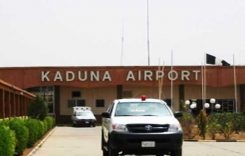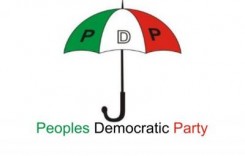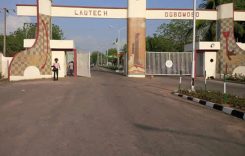By Abdulahi Abdallah
In spite of the deluge of challenges besetting our economy, Director-General of the Debt Management Office, Dr. Abraham Nwankwo recently assured Nigerians that our economy is very resilient because the federal government is in control and Nigeria’s economy will continue to remain sustainable.
Nwankwo’s verdict which shortly after the opening of a one-day enlightenment workshop for Nigerian students in Kaduna also stressed that the economy is not only resilient and diversifiable but has started a robust journey upward under the present administration.
He said: “Nigeria should be very proud that it has a CBN, it has an economic system that in spite of the oil shock we had our economy still remains strong. Other countries that have been in similar position, countries like Venezuela, Russia, have had their currencies devalued very rapidly in the 30 days of the oil shock. But you can observe that it was until about three months or four months later that in Nigeria’s case that the CBN has to do some little adjustments in the exchange rate.”
He further stated, “This shows that over these years, we have attempted to improve, to diversify the economy to centre on agriculture and that is a source of inspiration for all of us. The inspiration is that given the current administration of President Muhammadu Buhari, there is a certain change and Nigerians should use this opportunity to do better than we did in the past by making sure that agriculture continues getting modernized so that we have food security, so that we also produce enough for processing and manufacturing, which will ultimately bring about the desired job creation which is at the center of President Buhari’s Administration.”
Predictably, Nwankwo’s advocacy has struck a familiar chord with the present administration and among major players within the economy. Buhari only recently assured the nation that his administration would enact new policies in the 2016 national budget, which will see to the diversification of Nigeria’s economy from oil to other sectors such as mining, manufacturing and agriculture. Addressing a delegation of French investors in Abuja recently, President Buhari said, “We are doing our utmost best to encourage diversification into non-oil sectors which can employ a lot of people, which will ultimately help to improve security because unemployment and insecurity are inseparable.”
The president’s clearest indication of the economic policy direction of his administration yet was further reinforced by the President, Lagos Chamber of Commerce and Industry, Alhaji Remi Bello who said that the fall in the price of crude oil, currently the mainstay of the country’s economy made diversification of the economy not only imperative but very urgent. In his welcome address at the opening ceremony of the 2014 Lagos International Trade fair in Lagos, Bello who spoke on the theme, “Promoting Nigerian Economy as a Preferred Investment Destination,” stressed that the theme of the Trade Fair underscored the importance of building an economy that is diversified.
“The non-oil economy is generally more inclusive and integrated. It is characterized by high economic linkages, more stable and above all more sustainable,” he said. He called on government to fix the major impediments to productivity and competitiveness which he listed to include the parlous state of infrastructure especially public power supply, the challenge of substandard and fake products, poor state of roads, the high cost and limited access to funds, inconsistent policies and growing insecurity.
The pledge by President Buhari amid calls by the DMO, major stakeholders within the economy had become more strident in the face the parlous state of financial affairs in the states. Thirty-six states of the federation had approached President Muhammadu Buhari in June to ask for a bailout following their inability to meet their basic financial obligations including the payment of the salaries of their employees and other pressing financial obligations. The President had acceded to their request by approving the disbursement of $1.6 billion paid into the Federation Account by the Nigerian Liquefied Natural Gas (NLNG) company to the three tiers of government. Buhari also approved a Central Bank of Nigeria (CBN) N250 billion to N300 billion special intervention fund solely for the payment of the backlog of staff salaries and the restructuring of their commercial loans with the Commercial Banks into long tenured loans of 20 years.
Following this window of opportunity, 23 states of the federation applied to the DMO for their debts to be restructured into FGN Bonds, and all 23 States have been screened by the CBN and DMO and have had their loans converted into FGN Bonds, whose maturity will be in twenty years time.
In the aftermath of the restructuring of this short term bank loans into long term Federal Government of Nigeria, FGN Bonds, Director-General of the Debt Management Office, Dr. Abraham Nwankwo sees immediate gains accruing to the states. He indicated that this restructuring would cut the states’ monthly debt services burden by a minimum of 55 percent and maximum of 97 percent.
Throwing more light, he further explained that the renegotiated facilities would equally result in interest rate savings of between three and nine percent per annum for the affected states and would help them regain fiscal balance. Besides the gains accruable to the participating states, he explained that banks’ balance sheets would also improve as weak sub national loan assets are replaced with high quality sovereign assets. Nwankwo explained that the FGN Bonds enjoy enhanced liquidity since they are traded in the secondary market, thereby affording the banks improved space to lend to other sectors of the economy as they are free to convert their FGN Bond holdings into cash in the secondary market.
The commercial Loan-to-FGN Bond plan is envisioned as a short term fiscal stabilization. Beyond this palliative measure, the diversification of the economy will bring to bear lasting positive impact which will drive economic vitality and place the nation on a stronger economic pedestal.
A review of government’s revenue profile in the last half decade shows a disturbing pattern of our over dependence on oil, with oil accounting for about 80 percent of our foreign exchange earnings and non-oil sector contributing 20.1 percent (CBN 2010).
Given this stark reality of our dependence on oil, the Nigerian economy is vulnerable to slump in the price of oil in the international market as is presently being felt in all facets of our economy.
Despite these given statistics, available evidence point to a marginal improvement in the contribution of non-oil sector to the growth of the Nigerian economy. The Central Bank of Nigeria (CBN) attributed the growth in our Gross Domestic Product (GDP) from 6.9 percent in the third quarter of 2012 to 7.1 percent in the fourth quarter of the same year to the increase in the contribution of the non-oil sectors, particularly the industrial sector. (NBS 2012). The apex bank in its report titled, “Economic Report Fourth-Quarter 2012” stated that non-oil receipts stood at N589.98 billion (24.4 percent of the total). The risk of over dependence on oil has already been amply demonstrated by our shrinking foreign earnings occasioned by oil glut in the international market. With over 60 percent of Nigerians living below poverty line according to World Bank group, any further slide would be catastrophic.
The value chain to agriculture has the transformative capacity to open up the economy and generate various activities capable of creating jobs and enhancing our quest for industrialisation. This is the future path for our sustainable economic growth and should be explored. The Manufacturing sector is a major that will be pivotal to our drive towards economic diversification. It is a major employer of labour which gives numerous Nigerians the opportunity to participate in our economic development.
In essence, a knowledge based economy has as it’s the main driver manufacturing as parts and components must be produced. We should as a nation based on functional specialization and comparative advantage take into consideration the critical factors of production to increase the number of products which we can produce locally. Tourism, our resources in the solid mineral sector, the maritime sector are areas waiting for its resources to be harnessed for national growth and development.
The economic challenges confronting the present administration in the face of plummeting oil price in the international market are indeed formidable and requires concerted effort to diversify our economy. This will entail policies to promote expanded production in both agricultural and industrial sector. If we achieve higher level of production output, we will not only satisfy local demand for our goods with a reasonable balance for export. We must work hard to expand our exports beyond African and Asian markets. The present government should place greater impetus in our penetration of African markets to fully harness our comparative advantage.
An immediate upgrade of basic infrastructure to functional level such as adequate power and water supplies is required for our industrialization drive to yield meaningful results. Only then, will our concerted effort and promotion of Foreign Direct Investment become more impactful to our national economy.
It is on this note that this writer aligns with the call by the Debt Management Office for the diversification of the nation’s economy. The time is not only ripe but the new administration has created a conducive atmosphere for that.
*Abdallah wrote in from Kaduna





